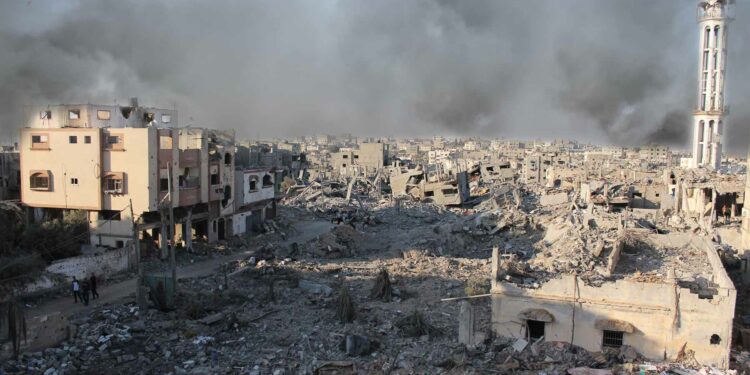PANEL DISCUSSION
14th September 2021 — 1:00Pm TO 2:30PM
ONLINE – Zoom Digital platform
The Tunisian political transition has been in turmoil for some time now. Struggle over powers and prerogatives has been the main feature of the Tunisian polity since 2011. The socio-economic hardships, and the political deadlock, further exacerbated by the COVID-19 pandemic seem to have brought this promising transition to a sudden and unexpected halt. Based on a legal interpretation of article 80 of the Tunisian constitution, the Tunisian president, Kais Saied announced on 25th July 2021, his decision to dismiss the government of the Prime Minster Hicham Mechichi and assume all executive powers, suspend the parliament and the legal immunity of parliamentarians. He also took full control of the general prosecutor’s office. The Tunisian society is divided more than ever between those taking to the streets in opposition accusing the President of staging a coup, and those hailing these exceptional constitutional measures as corrective measure to protect the Tunisian State and Democracy.
The International Center for Dialogue Initiatives (ICDI) is pleased to organize this webinar, as a platform for Tunisian experts to explore the following questions:
- How did Tunisia’s promising political transition take this dramatic turn?
- Are the Presidential decisions a threat to the nascent democratic transition in Tunisia or necessary preemptive measures to protect this transition?
- Are the current developments natural symptoms of any democratization travail?
- Will the Tunisians be able to repeat the feat of 2011, by peacefully and without foreign interference, resolving the crisis?
- How did the political economy of transition affect the Tunisian political trajectory?
- What are the options for Tunisia’s democratic transition to resume its course and what are the likely scenarios?
Panelists:
Youssef Mahmoud, Former Under Secretary General, United Nations, ICDI Board member.
Khadija Taoufik Moalla, Human Rights and Gender expert, University of Paris V, France
Fadhel Kaboub, Associate Professor of Economics at Denison University, Ohio.
Oueim Chettaoui, Independent researcher, Public Policy and SSR expert
Moderator: Youness Abouyoub, Director of Programs, ICDI
Biographies
Youssef Mahmoud is a board member of ICDI , and senior adviser at the International Peace Institute (IPI), supporting the sustainable development and peace operations programs, and serving as the focal point on mediation and prevention policies and practices. He is a former UN Under-Secretary-General and has headed peace operations in Burundi, the Central African Republic and Chad. Prior to these assignments, he held other senior United Nations positions, notably as UN Resident Coordinator in Guyana, Director in the UN Department of Political Affairs and Head of the Office of the Undersecretary-Secretary-General for Political Affairs. In 2015, he served as member of the UN Secretary-General High Level Panel on Peace Operations (HIPPO) and simultaneously as a member of the High Level Advisory Group for the Global Study on Security Council Resolution 1325 on Women, Peace and Security.
Dr. Khadija Moalla has more than 30 years of experience in Development, Human Rights and Gender, including 15 years in Senior Leadership positions in the United Nations, Dr. Moalla holds a PhD in International Development Law from the University of Paris V, France. Since February 2020, she has been nominated to be one of the 20 Commissioners of the Lancet Commission on Gender and Global Health. Dr. Moalla’ repertoire includes extensive expertise in Human Rights, Gender equality, Health/AIDS, Governance, Rule of law, international and civil society organizations, SDGs, Prevention of Violent Extremism, CCA/UNSDCF. She is also a recognized Global Practitioner Coach in the Radical Transformational Leadership Model and provided trainings, lectures and consultancies in more than 60 countries in the five continents. During the last decade, Dr. Moalla published more than 150 articles in Arabic, French and English. Dr. Moalla is one of the Founding members of the New Middle East Gender Parity at the World Economic Forum and of the Global Legal Network. She has provided advice and shared in constructing policies of the Arab Parliament. Dr. Moalla received the Leadership Award from the United Nations General Assembly President for her Team work with Religious Leaders through the establishment of the Multi-Faith Network CHAHAMA and received the Excellency Award of the 2010 South-South Global Expo for successful innovative Solutions. Dr. Moalla was chosen as one of the most influential 40 women and 500 personalities of the Arab region, in 2011. In January 2021, she received the European Union Lina Ben Mhenni Freedom of speech Award for its 2020 edition.
Fadhel Kaboub is an associate professor of economics at Denison University, and the president of the Global Institute for Sustainable Prosperity. He has held research affiliations with the Levy Economics Institute, and the John F. Kennedy School of Government at Harvard University. He is an expert on Modern Monetary Theory, the Green New Deal, and the Job Guarantee. His work focuses on public policies to enhance monetary and economic sovereignty in the Global South, build resilience, and promote equitable and sustainable prosperity. His work has been featured in the New York Times, Financial Times, Bloomberg, Le Monde, and France 24. You can follow him on Twitter @FadhelKaboub and @GISP_Tweets
Ouiem Chettaoui is a Tunisian public policy specialist who focuses on the security sector. She is also the President of the Observatory for Food Sovereignty and the Environment. She previously worked as a researcher at the United States Institute of Peace (USIP). She is a graduate of Oxford University.





